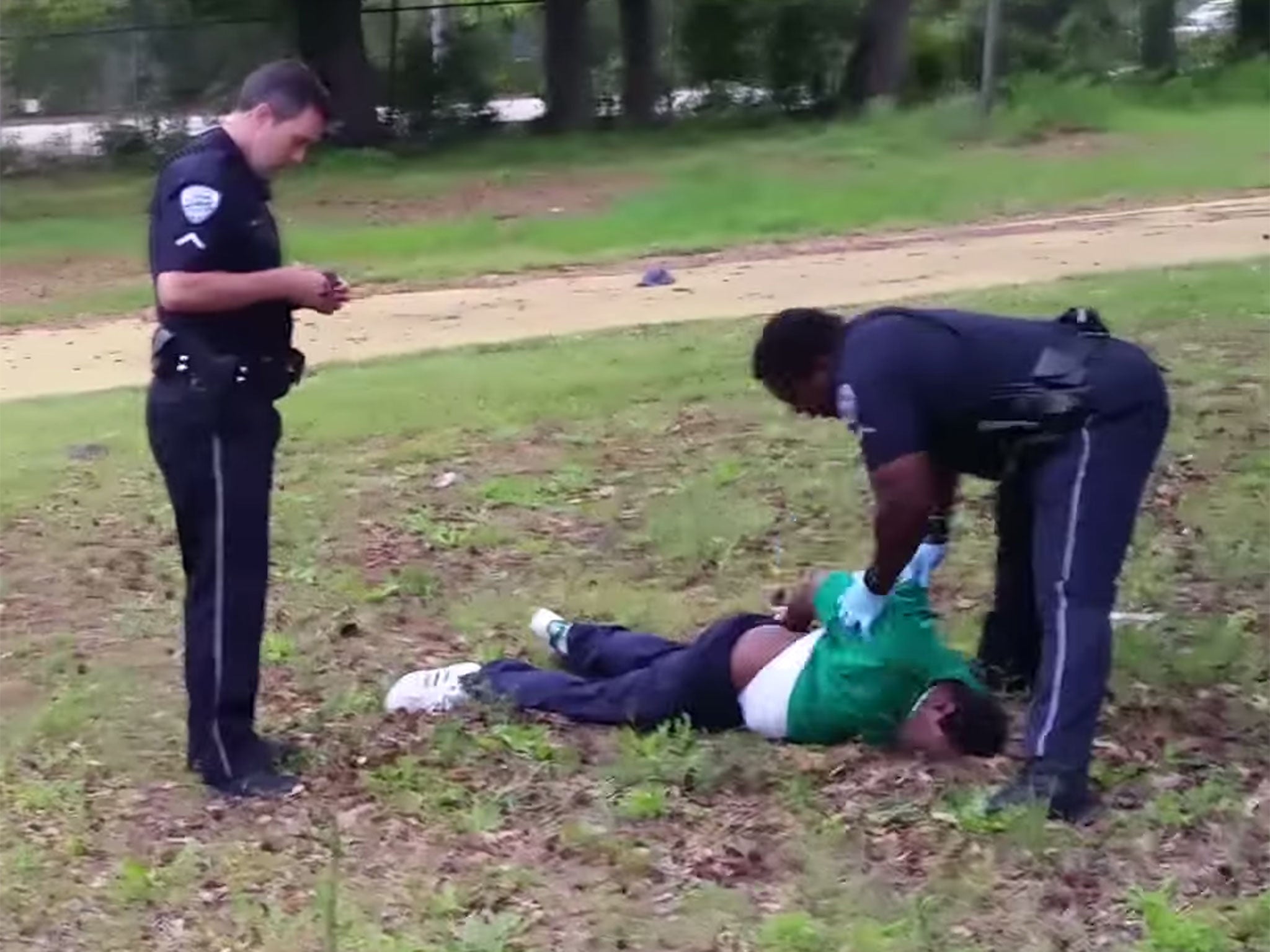Walter Scott shooting: The worst part of black history isn't slavery, but the time we thought the law actually protected us
We were acting on legislation. And we were terrorised, we were lynched, we disappeared

Your support helps us to tell the story
From reproductive rights to climate change to Big Tech, The Independent is on the ground when the story is developing. Whether it's investigating the financials of Elon Musk's pro-Trump PAC or producing our latest documentary, 'The A Word', which shines a light on the American women fighting for reproductive rights, we know how important it is to parse out the facts from the messaging.
At such a critical moment in US history, we need reporters on the ground. Your donation allows us to keep sending journalists to speak to both sides of the story.
The Independent is trusted by Americans across the entire political spectrum. And unlike many other quality news outlets, we choose not to lock Americans out of our reporting and analysis with paywalls. We believe quality journalism should be available to everyone, paid for by those who can afford it.
Your support makes all the difference.What is has always been.
In America, black people have always been targeted, stalked, terrorised, tortured, murdered. Sometimes what I need people to understand is that this is normal. What is not normal is how you're finding out about it. Reading these words on your computer screen about such a thing is not normal.
But our deaths are normal. The killing of Walter Scott is normal. The rules have been in place, and they haven't changed. What are these rules? Don’t slouch, don’t relax, don’t exhale, don’t walk too tall, don’t walk too close, don’t act too proud, be more humble, and if they ask you why you are wherever you are just smile and nod and explain. And smile. These have been the rules.
Shoot me.
The revolution will not be televised, tweeted, liked, or favorited. But the deaths will be. The shootings keep getting shot and reshot. And replayed. They get their own hashtags. But when you look at it, there is nothing actually happening. Nothing has changed. What is has always been.
If you ask most people, black or white, when the worst part of black history was, they’ll say “slavery”. And they'll be wrong. The worst, bloodiest time in black history was 1890 to 1920. After emancipation, after reconstruction. After the laws that said that black lives mattered. And we were terrorised, we were lynched, we disappeared.
Our bodies would float in the Mississippi so much that you could mistake us for the water flowing.
My younger brother will turn 18 and graduate high school next month. He will move away from home and attend college. What are the things people normally think about when this happens? For us, the normal thing to think of is death. My brother is 17 and all I can think of is his pending graduation and his murder.
What is it like to take a sibling like mine for granted? What is it like to imagine him going away to college and being happy? Maybe he drinks? Meets a girl? Discovers his passion? Travels? I don’t think of these things.
I think about how he must keep from being alone at dark near police.
Isn’t that funny? I bet most white parents would tell their children to seek out a cop if ever caught alone unawares. Not us.
Dear brother, if you see a cop, do not run, do not walk, do not. Do not. Do not. Just collapse. Play dead.
Play dead.
Then I think of how much I wish I could guard my brother somehow. At all times, I’d be in front of him and when the cops come I’d bare my chest.
And I’d say shoot me.
I’d shout at them to shoot me.
I’d order them to shoot me.
I’d beg them to shoot me.
I’d plead with them to shoot me.
And I’m willing to do that. For my brother I plan to do that. For my sister I plan to do that. For my father, for my mother I will do that.
For my country.
Shoot me.
Linda Chavers received her PhD in African American Literature from Harvard University in 2013. Originally from Washington, DC, she currently lives and writes in New Hampshire.
Join our commenting forum
Join thought-provoking conversations, follow other Independent readers and see their replies
Comments